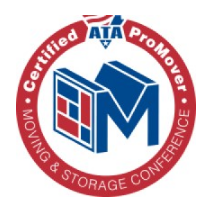How to Move Out at 18: Complete Guide to Moving Out for the First Time

Moving out at 18 is a thrilling yet challenging milestone on the path to independence. This significant transition demands careful planning, financial preparation, and emotional readiness to approach successfully.
Undertaking this endeavor involves evaluating your abilities, building a solid financial base, and refining crucial life skills. From securing stable income and mastering budgeting to finding affordable housing and creating a comfortable living space, each step plays a crucial role in your newfound independence.
Effective communication with family, understanding your legal rights, and building a support network are equally important aspects of this process.
By addressing these key areas and preparing for potential hurdles, you can confidently take your first steps into a fulfilling independent life, armed with the knowledge and skills to thrive on your own.
Assessing Your Readiness To Move Out
Moving out at 18 is an exciting prospect, but it requires careful self-evaluation to ensure you’re prepared for the challenges ahead. Let’s explore the key areas you need to assess before taking this significant step toward independence.
Emotional And Mental Preparedness
Transitioning to independent living requires emotional strength and mental determination. Before making the leap, consider the following:
- Your ability to handle stress and make decisions independently
- How you’ll cope with potential loneliness or homesickness
- The strength of your support network outside your family
- Your problem-solving skills and adaptability
Remember, living alone often presents unexpected challenges. It’s essential to be honest with yourself about your readiness to face these hurdles.
Financial Stability Evaluation
Financial readiness is crucial when contemplating a move at 18. To assess your financial stability:
- Develop a detailed budget covering all anticipated expenses:
- Rent and utilities
- Food and groceries
- Transportation costs
- Entertainment and personal expenses
- Evaluate your income sources and ensure they’re stable enough to cover your monthly costs.
- Aim to have an emergency fund covering 3-6 months of expenses before moving out.
This financial preparation will provide a solid foundation for your independence.
Life Skills Inventory
Take stock of your practical life skills essential for independent living. Ask yourself:
- Can you cook nutritious meals on a budget?
- Are you proficient in doing laundry and basic home maintenance?
- How well do you manage your time and personal responsibilities?
- Are you able to independently manage healthcare systems and schedule appointments?
These tips for moving out for the first time can provide additional guidance on essential skills to develop. Remember, it’s okay if you’re not an expert in all areas – moving out is a learning experience, and you’ll continue to grow and improve over time.
Moving Out at 18 With Limited Funds
Moving out at 18 with little or no money requires careful planning and creative solutions. While it’s challenging, it’s not impossible if you approach it strategically and are willing to make some sacrifices. The key is to maximize your resources while minimizing expenses through careful preparation and smart choices.
Many young adults successfully move out at 18 despite financial limitations by combining multiple strategies. This might include finding shared housing, securing employment before moving, and building a support network that can help during the transition. Understanding your options and available resources is crucial for making this significant life change with limited funds.
Before making the move, it’s essential to explore all possible income sources and assistance programs. This could include job opportunities, educational scholarships with housing stipends, or legitimate government assistance programs designed for young adults transitioning to independence.
Finding Free and Low-Cost Resources
When moving out with limited funds, take advantage of free and low-cost resources in your community. Many organizations offer assistance to young adults, including:
– Local youth support services
– Community centers
– Religious organizations
– Social service agencies
These organizations often provide valuable resources such as:
– Job training programs
– Financial literacy workshops
– Furniture and household items
– Emergency assistance programs
Creative Housing Solutions
Consider alternative housing arrangements that can significantly reduce costs:
– Room sharing in established households
– House-sitting opportunities
– Work-exchange housing arrangements
– Student cooperative housing
– Shared housing with multiple roommates
Each option has its advantages and challenges, but all can make moving out more financially feasible when working with limited resources.
Building Income While Minimizing Expenses
Focus on maximizing income while keeping expenses as low as possible:
– Take on multiple part-time jobs
– Explore gig economy opportunities
– Look for jobs with housing benefits
– Develop marketable skills quickly
– Create a bare-minimum budget
– Find free entertainment and activities
– Use public transportation or bicycle
– Learn to cook simple, affordable meals
Remember that moving out with limited funds requires patience and flexibility. Start with the basics and gradually improve your situation as your income increases.
Creating A Solid Financial Foundation
Establishing a strong financial base is crucial for successfully moving out at 18. Let’s explore the key components of building this foundation, from securing income to managing your finances responsibly.
Securing Stable Income
A reliable income stream forms the cornerstone of your financial independence. Consider various options to ensure you can cover your living expenses consistently.
Full-Time Employment Options
Explore full-time job opportunities that align with your skills and interests. Here are some steps to get started:
- Research entry-level positions in your preferred industry
- Update your resume and tailor it to each application
- Practice interview skills with friends or family members
- Network through social media and professional platforms
Don’t hesitate to seek guidance from career counselors or mentors who can provide valuable insights and connections.
Part-Time Jobs And Side Hustles
Combining part-time work with side gigs can help diversify your income sources. Consider these options:
- Freelancing in writing, graphic design, or web development
- Tutoring in subjects you excel at • Leveraging hobbies like photography or music for paid gigs
- Participating in the gig economy through ride-sharing or delivery services
Establishing A Budget
Developing a detailed budget is essential for closely monitoring your income and expenses. Follow these steps:
- List all anticipated costs, including rent, utilities, groceries, transportation, and entertainment
- Allocate funds for savings and emergencies, aiming for 10-20% of your income
- Use budgeting apps or spreadsheets to monitor your spending
- Regularly review and adjust your budget to ensure it remains realistic and achievable
Opening And Managing Bank Accounts
Setting up separate checking and savings accounts will help organize your finances. Consider these tips:
- Research banks offering low-fee or no-fee accounts designed for young adults
- Familiarize yourself with online banking tools and mobile apps
- Set up automatic transfers to your savings account to build your emergency fund
- Enable account alerts to stay informed about your balance and any unusual activity
Building Credit Responsibly
Starting to build a positive credit history early can set you up for future financial success. Here’s how to begin:
- Apply for a secured credit card or become an authorized user on a parent’s credit card
- Use your credit card for small, regular purchases like gas or groceries
- Pay the balance in full each month to avoid interest charges
- Keep your credit utilization low, ideally below 30% of your credit limit
Remember, responsible credit use involves avoiding carrying a balance or maxing out your credit limit, as these practices can negatively impact your credit score.
Mastering Essential Life Skills
Developing crucial life skills is fundamental to thriving independently. Revised Sentence: Key areas are explored that will empower you to manage your daily life efficiently and confidently.
Cooking And Meal Planning
Learning to cook nutritious meals is both cost-effective and healthier than relying on takeout. Here are some tips to get you started:
- Begin with simple recipes and gradually expand your culinary repertoire
- Create weekly meal plans to streamline grocery shopping and reduce food waste
- Invest in basic cooking equipment like pots, pans, and utensils
- Stock your pantry with versatile ingredients such as rice, pasta, and canned goods
By mastering these basics, you’ll be well on your way to becoming a competent home chef.
Laundry And Home Maintenance
Proper laundry care ensures your clothes remain in good condition. Follow these guidelines:
- Sort clothes by color and fabric type
- Familiarize yourself with washing machine settings and care label symbols
- Use appropriate detergents and fabric softeners
To maintain a tidy living space, establish a regular cleaning routine. Create a checklist of tasks:
- Daily: Make your bed, wash dishes, wipe down counters
- Weekly: Vacuum, mop floors, clean bathroom
- Monthly: Dust ceiling fans, clean windows, organize closets
Consistency is key to keeping your home organized and hygienic.
Time Management And Organization
Effective time management is crucial for balancing work, personal life, and household responsibilities. Consider these strategies:
Use digital tools or a physical planner to schedule tasks and appointments
- Break larger projects into smaller, manageable steps
- Prioritize your to-do list based on importance and deadlines
- Set realistic goals to maintain productivity without overwhelming yourself
Remember, good time management skills will serve you well in all aspects of life.
Basic Home Repairs
Acquiring basic DIY skills can save you time and money on minor home repairs. Here’s what you should know:
- Learn how to change light bulbs, unclog drains, and patch small wall holes
- Invest in a basic tool kit (hammer, screwdrivers, pliers, etc.)
- Familiarize yourself with your tool kit’s contents and their uses
While it’s great to be self-sufficient, know your limits. Don’t hesitate to call professionals for complex or potentially dangerous repairs. Safety should always be your top priority when attempting any home maintenance task.
Navigating The Housing Market
Finding suitable housing is a crucial step in your journey to independence. Let’s explore the key aspects of securing a place to call your own.
Determining Your Housing Budget
Establishing a realistic housing budget is essential for financial stability. Here’s how to approach it:
- Calculate 30% of your monthly income as a starting point for rent
- Factor in additional costs such as utilities, internet, and renter’s insurance
- Consider potential fluctuations in your income and expenses
- Leave room for savings and unexpected costs
Exploring Different Living Arrangements
Renting An Apartment
Renting an apartment offers independence and privacy. When considering this option:
- Research local rental markets to understand average prices and available amenities
- Evaluate factors like proximity to work or school and public transportation access
- Factor in additional costs such as parking or pet fees if applicable
House Sharing With Roommates
Sharing a house can significantly reduce your living expenses. To make this arrangement successful:
- Look for potential roommates through trusted networks or reputable websites
- Establish clear house rules and responsibilities before moving in
- Discuss expectations regarding shared spaces, guests, and bill payments
Student Housing Options
For students, on-campus housing or university-affiliated apartments can be excellent choices. Consider:
- Proximity to classes and structured support systems
- Potential higher costs and less privacy compared to off-campus options
- Availability of financial aid or scholarships for housing
Understanding Lease Agreements
Before signing a lease, take these important steps:
- Read the agreement carefully, paying attention to lease duration, rent amount, and security deposit
- Ask questions about any points you don’t understand
- Consider having a trusted adult or legal professional review the lease with you
Evaluating Neighborhoods And Safety
By carefully considering these aspects, you’ll be well-prepared to find a suitable and safe living arrangement that fits your budget and lifestyle needs.
- Look into crime statistics, local amenities, and community resources
- Visit the area at different times of day to assess safety and noise levels
- Talk to current residents for insights into the community and potential concerns
By carefully considering these aspects, you’ll be well-prepared to find a suitable and safe living arrangement that fits your budget and lifestyle needs.
Planning The Move
Preparing for your move requires careful organization and strategic planning. From creating a timeline to arranging transportation, each step is crucial for a smooth transition to your new home.
Creating A Moving Timeline And Checklist
Developing a detailed moving timeline is essential for a successful move. Start by outlining tasks from two months before your move to moving day.
- Include important milestones such as:
- Giving notice to your current landlord
- Transferring utilities
- Changing your address
Create a detailed checklist to track your progress and ensure nothing is overlooked. Break down larger tasks into smaller, more manageable steps to make the process more approachable.
Budgeting For Moving Expenses
Budgeting for a new home involves more than just rent and utilities. Consider all potential costs to avoid financial surprises.
- Factor in expenses such as:
- Security deposits
- Moving supplies
- Fees for setting up new services
If you’re considering professional help, don’t forget to account for moving company average costs. To get a more accurate estimate of your total expenses, utilize a moving cost calculator.
Packing Strategies And Tips
Efficient packing can save time, money, and stress during your move. Begin by decluttering and only packing items you truly need or want in your new space.
Implement the best packing tips when moving to protect your belongings and streamline the process. For fragile items, pay special attention to the best methods to pack glasses for relocation to prevent breakage.
Arranging Transportation
Deciding on the best method for transporting your belongings is crucial. Consider your options carefully to find the most suitable solution for your needs.
- Transportation options include:
- Renting a truck
- Hiring a moving company
- Enlisting help from friends and family
If you’re considering a rental truck, research moving truck fees to understand the full cost, including mileage and insurance. For a stress-free experience, consider finding a reliable moving company to handle the heavy lifting and transportation.
Thorough planning is key to a successful home moving experience. By taking the time to plan your move carefully, you’ll set yourself up for a smoother transition to independent living.
Remember, it’s okay to ask for help or advice along the way – moving out at 18 is a significant step, and being well-prepared will make all the difference.
Setting Up Your New Home
Transforming your new space into a comfortable and functional home is an exciting part of moving out at 18. This process involves several key steps to make your new place feel like your own.
Essential Furniture And Appliances
When furnishing your new home, focus on the basics:
- A comfortable bed for restful sleep
- A desk and chair for work or study
- Multipurpose furniture to maximize space and minimize costs
For appliances, consider:
- A mini-fridge for food storage
- A microwave for quick meals
- An electric kettle for hot beverages
Don’t hesitate to explore second-hand options or budget-friendly stores. Remember, you can always upgrade as your financial situation improves.
Utility Setup And Management
Setting up and managing utilities is a crucial step in your journey to independence:
- Research local utility providers for electricity, water, and internet services.
- Compare different plans to find cost-effective options that meet your needs.
- Set up automatic payments or reminders to ensure timely bill payments.
Learning to manage utilities responsibly will help you develop strong financial habits for the future.
Grocery Shopping And Meal Prep
Efficient grocery shopping and meal preparation can save you time and money:
- Create a list of pantry staples before heading to the store.
- Plan your meals for the week to prevent overspending and reduce food waste.
- Learn simple, nutritious recipes that can be prepared in batches.
Meal prepping not only saves money but also ensures you’re eating well while managing your busy schedule.
Creating A Comfortable Living Space
Personalizing your space doesn’t have to break the bank:
- Add affordable decor that reflects your personality, such as plants or wall art.
- Use throw pillows or rugs to add color and comfort to your living area.
- Establish a regular cleaning routine to maintain a tidy and inviting environment.
A clean, organized space can significantly enhance your mood and effectiveness as you embark on your new independent journey.
Setting up your new home is a gradual process. Focus on the essentials first, and add personal touches over time as you settle into your space. With patience and creativity, you’ll soon have a comfortable home that supports your newfound independence.
Living on Your Own at 18: Managing Money and Independence
Financial independence is a crucial aspect of moving out at 18. Mastering these key areas will help you build a strong financial foundation for your future.
Paying Bills And Tracking Expenses
To effectively manage your finances:
- Set up a system to pay bills on time, such as automatic payments or calendar reminders
- Use budgeting apps or spreadsheets to track your expenses
- Categorize your spending to identify areas where you can cut back if needed
Regularly review your spending habits and adjust your budget accordingly. This practice helps you stay on top of your finances and avoid overspending.
Saving For Emergencies And Future Goals
Building financial security involves:
- Starting an emergency fund to cover unexpected expenses or temporary loss of income
- Aiming to save 3-6 months of living expenses in a separate savings account
- Setting specific financial goals for the future, such as buying a car or continuing education
Allocate a portion of your income for these goals, treating savings as a non-negotiable expense. This approach will help you build a solid financial foundation.
Understanding And Obtaining Insurance
Protecting yourself financially includes:
- Researching different types of insurance, including health, renter’s, and auto insurance
- Understanding coverage options and choosing policies that best fit your needs and budget
- Comparing quotes from multiple providers to find the best rates
Don’t skip on insurance to save money; it’s a crucial safety net that can protect you from significant financial setbacks.
Filing Taxes As An Independent Adult
Managing taxes as a young adult involves:
- Learning about tax deductions and credits that may apply to your situation
- Keeping organized records of your income, expenses, and any tax-related documents throughout the year
- Considering tax preparation software or consulting with a tax professional for guidance
Filing your taxes correctly and on time is an important responsibility that can impact your financial health. Stay committed to your financial goals, and don’t hesitate to seek advice from trusted sources when needed. With practice and patience, you’ll become more confident in managing your finances independently.
Maintaining Relationships And Support Systems
Moving out at 18 is an exciting step in the direction of independence, but it doesn’t mean cutting off your support network. Nurturing existing relationships and building new connections are important for your emotional well-being and personal growth.
Communicating With Family About Your Decision
Open and honest communication with your family about your decision to move out is crucial. Consider the following steps:
- Share your plans, goals, and preparations for independence
- Listen attentively to their concerns and address them respectfully
- Demonstrate your maturity and readiness to ease their worries
By approaching this conversation with empathy and preparedness, you’re more likely to gain their support and understanding.
Building A Network In Your New Community
Actively seek opportunities to meet new people in your area:
- Join local clubs or organizations aligned with your interests
- Volunteer for community events or causes you care about
- Take classes or workshops to expand your skills and meet like-minded individuals
Building a diverse network can provide emotional support and potentially open doors to new opportunities. Remember, everyone starts somewhere, so don’t be afraid to put yourself out there.
Balancing Independence With Family Ties
Establishing clear boundaries while maintaining strong family connections is key:
- Schedule regular check-ins or visits to keep your family involved in your life
- Be open to their advice, but remember you’re responsible for your own decisions
- Communicate your needs for space and independence respectfully
Striking this balance shows respect for your family while asserting your newfound autonomy. It’s a delicate dance, but with patience and clear communication, you can maintain healthy family relationships.
Seeking Mentorship And Guidance
Identifying mentors in your personal or professional life can provide invaluable support:
- Look for individuals whose experience and values align with your goals
- Don’t hesitate to reach out and ask for their guidance
- Be open to learning from their experiences and mistakes
A good mentor can provide guidance, assist you in addressing challenges, and support your personal and professional development. Their insights can be particularly valuable as you adjust to living independently.
Maintaining relationships and building a support system is an ongoing process that requires effort and patience. However, the benefits of having a robust network are immeasurable as you embark on this exciting new chapter of your life.
Overcoming Common Challenges
Moving out at 18 brings exciting opportunities, but it also presents unique challenges. By anticipating and preparing for these hurdles, you can approach your new independence more smoothly and confidently.
Dealing With Homesickness
Homesickness is a natural part of the transition to independent living. Here are some strategies to combat these feelings:
- Stay connected with family and friends through regular calls, video chats, or visits
- Create a comforting environment in your new space with familiar items from home
- Engage in activities you enjoy and explore your new surroundings
By building positive associations with your new life, you’ll gradually adjust to your independent living situation.
Managing Unexpected Expenses
Unexpected costs can quickly derail your budget. To prepare for financial surprises:
- Build an emergency fund by setting aside a portion of your income each month
- Learn basic budgeting skills and track your spending to identify areas for potential cutbacks
- Consider learning simple DIY skills to handle minor repairs and maintenance
These strategies can help you save money and feel more financially secure in your new home.
Resolving Conflicts With Roommates
Living with roommates can be challenging, but clear communication is key to resolving conflicts. To maintain a harmonious living environment:
- Establish house rules and expectations early on, covering topics like cleaning responsibilities, quiet hours, and guest policies
- Address issues promptly and respectfully, focusing on finding solutions rather than placing blame
- Be willing to compromise and consider creating a roommate agreement to prevent future misunderstandings
By encouraging open communication and mutual respect, you can create a positive living experience for everyone involved.
Balancing Work, Study, And Personal Life
Maintaining a healthy work-life balance is crucial for your well-being and success. To achieve this balance:
- Create a structured schedule that allocates time for work, study, self-care, and socializing
- Use time management tools and techniques to boost productivity and reduce stress
- Prioritize self-care and relaxation to avoid burnout and maintain your physical and mental health
Remember, finding the right balance may take time and adjustments, but it’s essential for long-term success and happiness.
By approaching these challenges with a constructive mindset and practical strategies, you’ll develop valuable life skills and the ability to adapt effectively.
Overcoming obstacles is an essential part of personal growth and independence, and each challenge you face will contribute to your development as a capable, independent adult.
Frequently Asked Questions
- How much money should I save before moving out at 18?
It’s wise to save at least 3-6 months of living expenses before taking the leap. This cushion should cover essential costs such as rent, utilities, groceries, and transportation. Don’t forget to factor in potential emergencies too.
- How much money do I need to move out at 18?
The amount needed varies by location but generally requires 3-6 months of expenses saved, including first month’s rent, security deposit, and emergency fund. In most U.S. cities, plan for $3,000-$6,000 minimum, with higher amounts needed in expensive urban areas.
- Can you move out at 18 with no money?
While challenging, moving out at 18 with no money is possible by combining strategies like finding shared housing, securing employment first, and utilizing community resources. Success typically requires having a solid plan, multiple income sources, and a support network in place.
- How much money should I save to move out at 18?
Aim to save at least three months’ worth of expenses, including rent, utilities, food, and transportation, plus moving costs and security deposit. Calculate your monthly expenses and multiply by three, then add $1,000-$2,000 for moving expenses and unexpected costs.
- What legal documents do I need when moving out at 18?
Be sure to gather these crucial documents:
- Birth certificate
- Social security card
- Driver’s license or state ID
- Recent bank statements
- Proof of employment
Consider obtaining a passport as well for additional identification purposes.
- Can I move out at 18 without my parents’ permission?
As an 18-year-old, you’re legally an adult and can make the decision to move out independently. However, maintaining open communication with your family about your plans is beneficial. It can help preserve relationships and potentially secure valuable support during your transition.
- How do I find a reliable roommate?
Finding a trustworthy roommate requires diligence:
- Utilize reputable roommate-finding websites or apps
- Seek recommendations from friends or colleagues
- Conduct thorough interviews with potential candidates
- Check references and discuss lifestyle preferences
- Clearly outline financial responsibilities before making any commitments
- What should I do if I can’t afford to move out at 18?
If moving out isn’t financially viable right now, consider these alternatives:
- Continue living with family while building your savings
- Seek additional income sources to boost your finances
- Explore educational or career opportunities that include housing options
Develop a realistic budget and timeline for future independence. Remember, it’s okay to take your time and ensure you’re fully prepared for this significant life change.
Conclusion
Moving out at 18 marks a significant milestone in your life, one that demands careful planning, financial preparation, and emotional readiness. It’s an exciting journey, but it’s important to approach it with a realistic mindset and thorough preparation.
To set yourself up for success:
- Assess your situation honestly, considering your emotional and financial readiness
- Develop essential life skills like cooking, budgeting, and time management
- Build a strong support network of family, friends, and mentors
Remember, transitioning to independent living is a gradual process of growth and learning. It’s perfectly normal to encounter challenges along the way. Don’t hesitate to seek help when needed – it’s a sign of maturity, not weakness.
As you begin this new chapter:
- Embrace the opportunities and challenges that come with independence
- Maintain connections with family and friends while forging your own path
- Be patient with yourself as you explore this exciting phase of life
By balancing your newfound freedom with responsibility and support, you’ll create a fulfilling and successful independent life. Embrace this journey of self-discovery and growth, knowing that you have the tools and resources to thrive in your new environment.
Related Articles
Where to Move from Texas: Top 10 States for Ex-Texans in 2025

Where to Move from Texas: Top 10 States for Ex-Texans in 2025 Record numbers of Texans are exploring life beyond state lines, driven by soaring housing costs, evolving career landscapes, and the search for new lifestyle opportunities. The decision to leave Texas stirs intense emotions – after all, the Lone Star State‘s unique culture and […]
Read MoreHow to Move a House from One Location to Another: Planning to Completion

Relocating an entire house might seem like something out of a movie, but this remarkable feat of engineering happens more often than you’d think. From preserving historic mansions to saving beloved family homes from coastal erosion, house moving represents the intersection of cutting-edge engineering and practical problem-solving. With project costs typically ranging from $18,000 to […]
Read More




